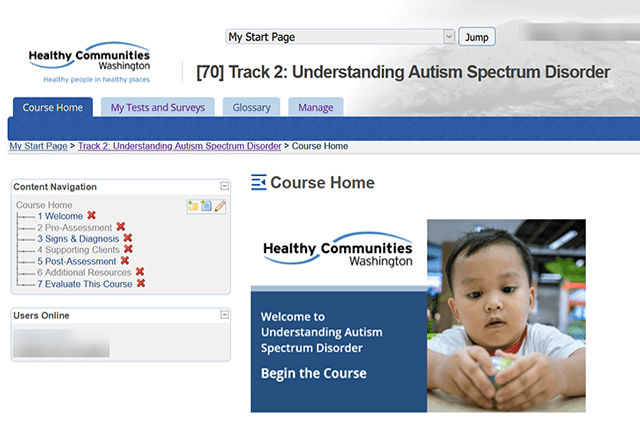Think back to that one person who worked with you in the past — the one who seems to have mastered their job. You know the one: It’s that team member who seems to know all the partners, gets along with every team, and can easily connect with coworkers and clients in a meaningful way. It’s that person that everyone just seems to really like. Maybe their secret is being extremely nice. Some people are just that way. More likely though, these employees have a carefully developed set of soft skills.
Core skills for most employees are much easier to research and select. They’re technical knowledge and subject matter expertise, for example. On the other hand, soft skills are nuanced and harder to evaluate, yet they’re a big part of the success of your new hire.
As such, they should be at the top of the talents you’re looking for in your applicants or to put on your own resume.
But let’s start from the top:
What Are Soft Skills For Employees?
Hard skills are generally easy to identify and build in yourself or your staff. Examples of hard or technical skills are:
- Organizational skills, such as project management and coordination
- Technical expertise, such as complex technical applications and software
On the flip side, soft skills are a mix of traits, behaviors, and attitudes that make it easier to get along and work effectively with others. These skills are a key component of success in any job or team. These are harder to discern and often arise as you interact with your teammate over a period of time.
7 Soft Skills to Prioritize for Your Next Hire
The most important soft skills for building a successful remote or in-person team are:
Communication
Strong communication is one of those skills that benefits every area of your life. Whether you’re looking for the next department head or an entry-level team member, communication skills help build rapport among staff and make it easier to solve challenges. Strong communication can improve performance, boost team morale, and change the overall experience for everyone on the team.
Signs that point to a skilled communicator:
- Conflict resolution: The ability to avoid or resolve conflicts as they arise
- Cultural understanding: Understanding and connecting in culturally diverse settings
- Nonverbal communication: Including perceiving the team’s cues and concerns
- Thoughtful expression: Coherently threading ideas to communicate their perspective
Empathy and Compassion
Teammates who are able to put themselves in others’ shoes can effectively work together and resolve conflict.
Regardless of agreeing or not on an issue, a team member must be compassionate and act with goodwill. Only this can ensure an effective approach to any issues. Empathy and compassion create a safe space where anyone can voice their concerns knowing they’ll receive respect and consideration.
Emotional Resilience
Feeling overwhelmed by emotions and chronic stress are among the biggest causes of burnout for most employees. Add bureaucratic challenges, overflowing desks, and patients at critical risk and it’s important that staff have adequate coping skills. Emotional well-being is key in job satisfaction and success but often overlooked.
For remote team members, emotional resilience means being able to adapt to daily stressors and juggle multiple situations without falling prey to despair and frustration.
Ethics
One of the most important soft skills for employees is strong ethical behavior. As part of any organization, employees must adhere to strong ethical values in their career, including:
- Honesty: As part of a team, your employee must be transparent in the services they offer and most importantly, their shortcomings. Honesty prevents resentment and helps address problems in a timely manner.
- Confidentiality: In any professional setting, internal knowledge must be kept precisely that, internal. Company information must be protected — and your employees are key in achieving this.
- Transparency: Being upfront about training, certificates, and other qualifications is key in any career.
- Quality: Employees must commit to providing the best possible service within their scope of work as part of a team or organization.
Adaptability, Flexibility, and Stability
In an ever-changing field and reality, swiftly adapting to rising challenges and team needs is a key to a successful career. Someone who struggles with changes or has no desire to adapt to new circumstances can present a challenge for evolving businesses and growth.
Being flexible within the boundaries of your organization implies alternative solutions to complex situations, providing resources, and walking unexpected paths to meet the company’s needs in the best possible way.
Active Listening
A big part of a successful team is understanding those working by your side. This starts with observing the background or context — and most importantly, truly listening to what they have to say to get a comprehensive view of what the organization’s needs are. These are often overlooked soft skills that can truly change the inner workings of a team.
5 ways to improve listening skills:
- Make eye contact.
- Give the person you’re talking to enough time to talk — don’t cut them off mid-sentence.
- Show respect by never making others feel rushed when they are with you.
- Maintain professionalism while being approachable at the same time.
- Ask open-ended questions designed to gather information.
Teamwork
The ability to work well with others is one of the important soft skills. Employees should be able to function as part of a multidisciplinary team.
Establishing trust with peers and supervisors, being able to communicate openly and respectfully, and collaborating effectively is key to achieve team goals and successful results.



